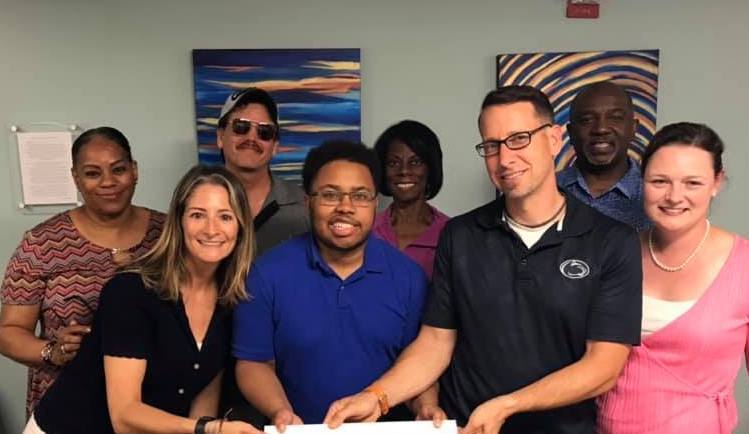Frequently Asked Questions about Traumatic Brain Injury (TBI)

Understanding TBI, its causes, symptoms, and treatments is crucial for both individuals at risk and their caregivers. This FAQ aims to provide comprehensive information about Traumatic Brain Injury.Traumatic Brain Injury (TBI) is a serious health concern that can result from various accidents and incidents
- What is Traumatic Brain Injury (TBI)?
Traumatic Brain Injury, commonly known as TBI, refers to damage to the brain caused by an external force or trauma. This force can result from various incidents such as falls, car accidents, sports injuries, or violent assaults. The severity of TBI can range from mild, with temporary cognitive impairment, to severe, leading to long-term disability or even death.
- What are the common causes of Traumatic Brain Injury?
The primary causes of Traumatic Brain Injury include:a. Falls: Falls are a leading cause of TBI, especially in young children and older adults. b. Motor Vehicle Accidents: Car, motorcycle, and bicycle accidents can result in head injuries. c. Sports Injuries: Contact sports or activities with a risk of head impact can lead to TBI. d. Assaults: Physical assaults or violence can cause significant head trauma. e. Explosive Blasts: Military personnel and civilians exposed to explosive blasts may suffer TBI.
- What are the symptoms of Traumatic Brain Injury?
Traumatic Brain Injury symptoms can vary depending on the severity of the injury. Common symptoms include:a. Headaches or migraines b. Confusion or disorientation c. Memory loss d. Nausea or vomiting e. Fatigue or drowsiness f. Changes in mood or personality g. Sensory issues, such as blurred vision or ringing in the ears h. Difficulty concentrating or making decisions
- How is Traumatic Brain Injury diagnosed?
Stroke Support Group Northern Virginia use a combination of clinical evaluation, imaging tests (such as CT scans or MRIs), and neurological assessments to diagnose TBI. It is essential to seek medical attention promptly if there is any suspicion of head injury, as early diagnosis and intervention can improve outcomes.
- Can Traumatic Brain Injury be prevented?
While it is challenging to eliminate all risks, several preventive measures can reduce the likelihood of TBI:a. Wearing helmets: Use helmets during activities such as biking, skating, or participating in contact sports. b. Fall prevention: Install handrails, use non-slip mats, and keep walkways clear to prevent falls. c. Seatbelt use: Always wear seatbelts when in a vehicle to minimize the risk of head injury in accidents. d. Violence prevention: Avoid situations that may lead to physical altercations or assaults.
- What is the treatment for Traumatic Brain Injury?
Treatment for TBI depends on the severity of the injury. Mild cases may require rest and monitoring, while more severe cases may involve surgery, medication, and rehabilitation. Physical, occupational, and speech therapy are often employed to help individuals regain lost abilities and improve their overall quality of life.
- What is the long-term impact of Traumatic Brain Injury?
The long-term impact of TBI varies from person to person. Some individuals may fully recover, while others may experience persistent cognitive, emotional, or physical challenges. Rehabilitation and support from healthcare professionals, family, and friends play a crucial role in helping individuals with TBI adapt to and manage these challenges.
- Can Traumatic Brain Injury lead to mental health issues?
Yes, TBI can contribute to mental health issues such as depression, anxiety, and post-traumatic stress disorder (PTSD). It is essential for individuals with TBI to receive comprehensive care, including mental health support, to address both the physical and emotional aspects of their condition.
- Is Traumatic Brain Injury reversible?
While some individuals may experience significant recovery, especially with mild injuries, complete reversal of TBI-related damage is often challenging. Rehabilitation and supportive care can help individuals maximize their potential for improvement, but the extent of recovery depends on various factors, including the severity of the injury and the effectiveness of treatment.
- How can family and friends support someone with Traumatic Brain Injury?
Support from loved ones is crucial for individuals with Donate To Veterans In Northern Virginia. Family and friends can help by:a. Providing emotional support and understanding b. Assisting with daily activities and tasks c. Encouraging participation in rehabilitation programs d. Creating a safe and supportive environment e. Advocating for the individual's needs within the healthcare system
- Can Traumatic Brain Injury occur without any visible head injury?
Yes, TBI can occur without any visible signs of head injury. In some cases, the force or impact that causes the injury may not leave external marks. It is crucial to be aware of the symptoms associated with TBI, even if there are no apparent external injuries.
- Are all TBIs the same, or are there different types?
TBIs can be classified into three main categories based on their severity: mild, moderate, and severe. Mild TBIs, often referred to as concussions, may result in temporary cognitive impairment. Moderate and severe TBIs involve more significant damage to the brain and can lead to long-term disabilities or even death.
- How soon after an injury should one seek medical attention for suspected TBI?
It is important to seek medical attention as soon as possible after a head injury. Some symptoms may not manifest immediately, and delayed treatment can impact the effectiveness of interventions. Early diagnosis and intervention enhance the chances of a better outcome.
- Are children more susceptible to TBIs than adults?
Yes, children are more susceptible to TBIs due to their developing brains and increased likelihood of engaging in activities with a higher risk of head injuries. Falls, sports-related injuries, and accidents during play are common causes of TBIs in children.
- Can repeated concussions lead to long-term consequences?
Yes, repeated concussions, especially in a short period, can lead to long-term consequences known as chronic traumatic encephalopathy (CTE). CTE is a degenerative brain condition associated with repetitive head trauma, often seen in athletes engaged in contact sports or military personnel exposed to repeated blasts.

